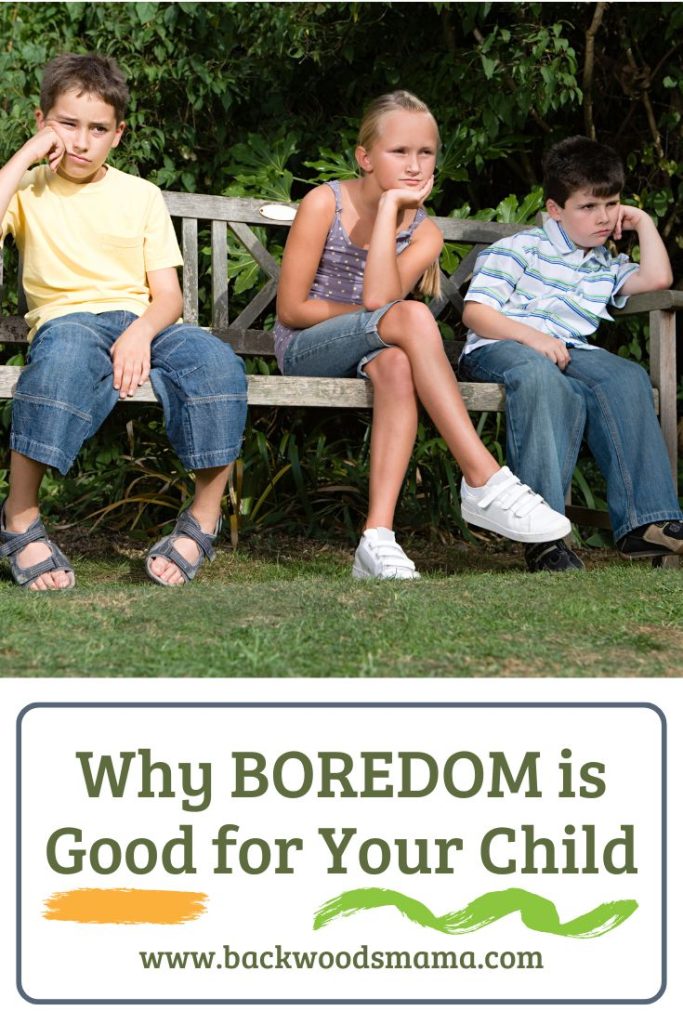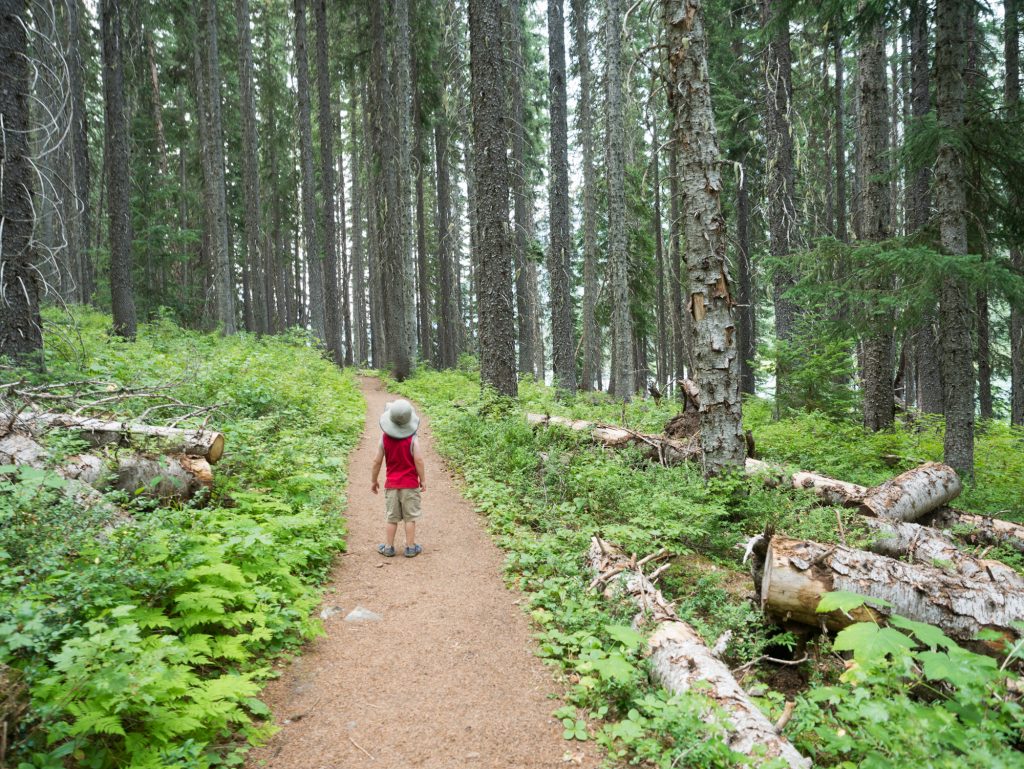
When my kids complain that they’re “sooooo boooored”, it’s like hearing someone scrape their nails across a chalkboard. I want to curl up and hold my hands over my ears and beg – please stop! I’m tempted to reach for an electronic device or recite a litany of ideas to chase my child’s boredom away. Instead, I take a deep breath, brace myself, and courageously say “well my friend, I look forward to seeing what you get up to!”. That’s when the magic begins!
Boredom is uncomfortable for children, and by extension their parents, but it isn’t a bad thing. Letting children get bored every now and again can actually be good for kids and help them grow and develop in positive ways.
This article is all about boredom and answers the questions: What is boredom? Why do kids get bored? Is boredom bad? Why is boredom good? and How should parents respond to kids when they are bored?
If you like this article sign up for my monthly newsletter!
Disclaimer: This page contains Amazon Affiliates links and I may earn a small commission from your purchases made through them.
What is boredom?
Boredom is an emotion. One that doesn’t get that much attention compared to anger or happiness, but it’s just as important. It is defined as “a state of mind characterized by a lack of interest, stimulation, or challenge” and it happens to everyone, even more so for kids¹. Some people compare boredom to pain, because it’s an uncomfortable feeling. It’s the brain saying, “something is wrong – help!”. If your child is feeling bored chances are she is grumpy and frustrated. These feelings are important and normal! There’s nothing wrong with your child if they experience boredom.
Boredom is really important because it signals instances to us when we’re not meaningfully engaged in the world, and it gives us an opportunity to fix it.
Speaking of Psychology: Why boredom is surprisingly interesting, with Erin Westgate, PhD
Why do kids get bored?
If it feels like your child gets bored a lot, that’s normal. Children are more likely to get bored because their brains are still developing and they are more restricted by what they can and cannot do.
Kids can get bored because:
- They are faced with a task or activity that is too easy or too challenging.
- They have a difficult time paying attention to a task or activity.
- They don’t find value or meaning is a task or activity.
We get bored when we are not able to pay attention or cannot find meaning in what we are doing.
Why Boredom Is Interesting
Is boredom bad?
The short answer: No, but sometimes yes. Boredom isn’t a great feeling but its a normal experience, and especially for kids. Boredom, like anger, isn’t bad in itself, but the way kids act on those feelings can be good or not great. While feeling bored won’t hurt your child but sometimes boredom can make kids do impulsive things. I have seen my share of destroyed toys and items at the hands of my firstborn over the last decade. He wasn’t being bad. He was bored and curious and it occasional led to trouble. One time, when my son was young, he dismantled his cousin’s corn popper toy, and that was a disaster in more ways than one!
Four reasons why boredom is good for you child
The reason why I let my kids experience boredom is that it gives them opportunities for growth and development, especially when boredom is managed and acted upon in a positive way. Here are four reasons why boredom is great for kids.
Boredom helps your child regulate emotions
Life is full of difficult and frustrating moments and learning how to cope with them is an important skill to learn. Allowing your child to work through feeling bored can help them learn how to manage difficult feelings.
Boredom spurs creativity and problem-solving skills
Boredom gives children space to use their creativity, imagination and problem-solving skills. At the age a twelve, during a family reunion, I remember complaining to my father that I was bored. He told me, quite frankly, that I had to figure it out on my own, so I did. My cousins and I scoured around and found Styrofoam insulation, wooden planks, a hammer and nails and built a raft that we floated down the nearby waterway. We had so much fun, and all because we were bored.
Boredom boosts self-esteem
Children that learn how to manage their feelings of boredom, feel more confident about themselves and their abilities to cope with situations. As parents we want to keep our children safe from all the negative emotions, but learning how to manage challenging feelings is an important part of growth and learning. In the same way parents provide space and support to help their children manage emotions like anger, the same holds true for boredom.
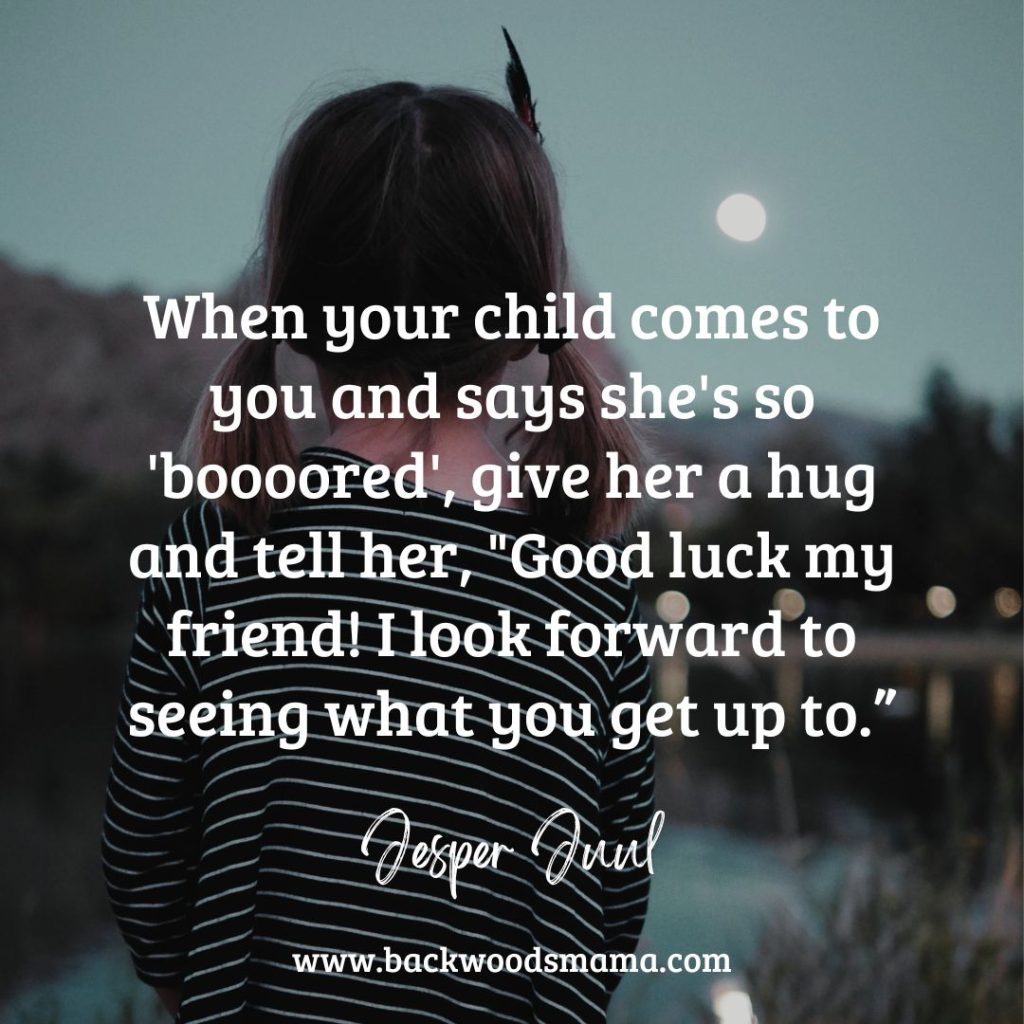
How to respond when your child is bored
When kids say they’re “soooo booored” parents either jump into action to banish boredom away (often with screens) or they discount their child’s struggle. I’m guilty of doing both, especially the second approach since that’s how I was raised. However, there’s another approach. One that allows your child to embrace the benefits of boredom while supporting them in that experience. This approach requires two things from parents: 1) To be excited about boredom and 2) To be proactive about boredom.
Be excited about boredom
Be excited about boredom? Yes! Instead of cringing when your child complains he’s bored, be excited! Boredom is an invitation to learn and grow in marvelous ways. See boredom as an opportunity, instead of a burden, requires a mindset shift, and it has to start with you, the parent. Here are a couple thing you can say to show your child that boredom can be exciting:
- “Great! I can’t wait to see what you will get up to”
- “That’s exciting! What are you going to do about it?”
- “Boredom can feel hard, but I’m excited to see what you do with it!”
Whatever you chose to say, be authentic and empathetic. Yes, boredom doesn’t feel good (acknowledge that!) but it can lead to good things.
Be proactive about boredom
Often children (and parents) turn to screens to get rid of boredom, but by doing this it takes away any of the benefits boredom has to offer. Before boredom set in, be proactive, take some time with your child to brainstorm screen-free activities he can do if he’s feeling bored. Make a list, using words or images, and put it somewhere your child can see. Gather any supplies your child might need for these activites, loose parts are great too, and place them somewhere accessible. When you child announces that she’s bored, encourage her to have a look at the list you created together and pick something off the list.
If you’re children doesn’t want to do anything with their boredom scroll down for how to manage this situation.
Another suggestion, have a few activity books for your child to peruse when bored.

1000 Hours Outside: Activities to Match Screen Time with Green Time by Ginny Yurich (Author)
“A collection of games, crafts, and activities, organized by season to help you find something you can do every day/”
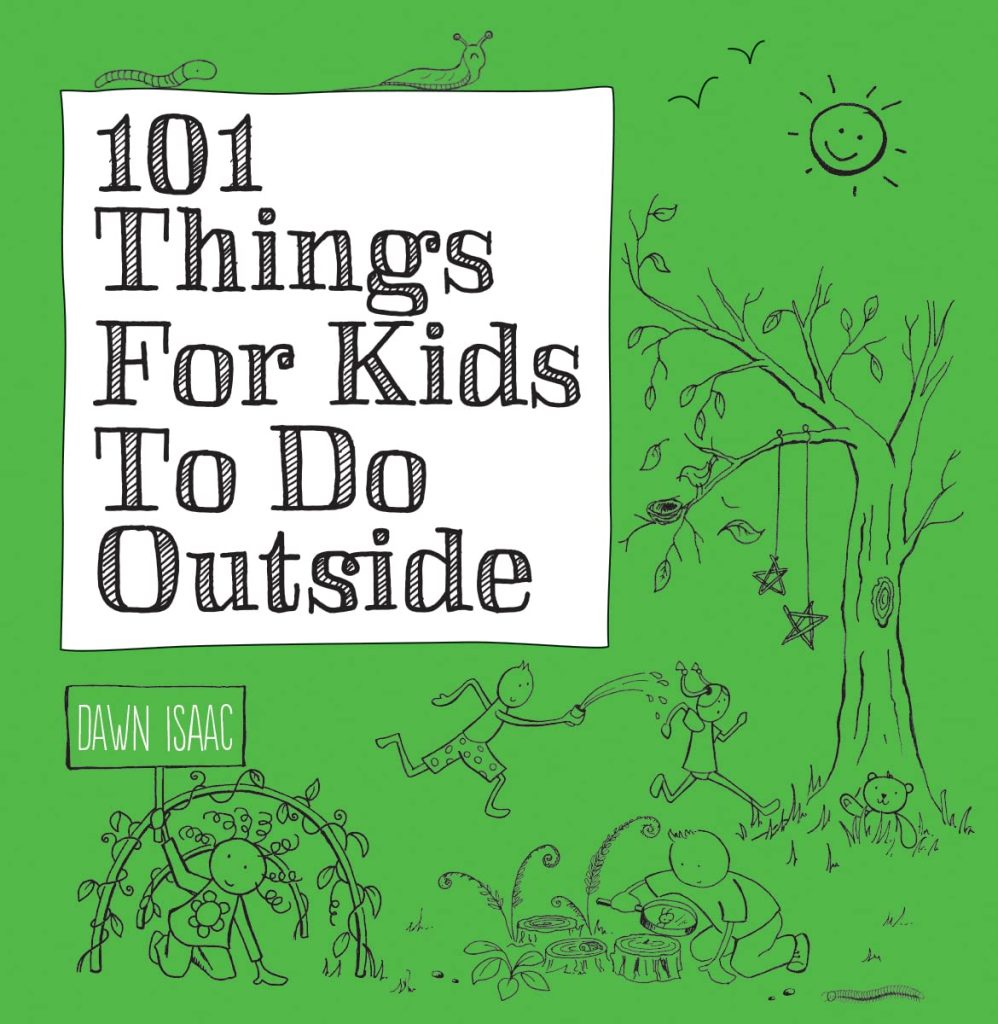
101 Things For Kids To Do Outside by Dawn Isaac
“101 Things For Kids To Do Outside is ideal for parents, teachers, and all those working with youth. This book is ideal for the children who like gaming, TV, movies, the soft couch, and even too many snacks. The kids who believe “there’s nothing to do outside” can learn and be encouraged to experience the joy of outdoor play.”

150+ Screen-Free Activities for Kids: The Very Best and Easiest Playtime Activities by Asia Citro (Author)
“These fun activities help develop your child’s creativity and skills–all without a screen in sight. Featuring step-by-step instructions and beautiful photographs, each budget-friendly project will keep your child entertained, engaged, and learning all day long.”

Awesome Science Experiments for Kids: 100+ Fun STEM / STEAM Projects and Why They Work by Crystal Chatterton (Author)
“With awesome projects like a Fizzy Rocket, Magnet-Powered Car, and Pencil Sundial, kids will have a blast learning to build, design, and think critically—while getting inspired to interact with the world around them and make their own discoveries.”
Part of the Awesome STEAM Activities for Kids series.
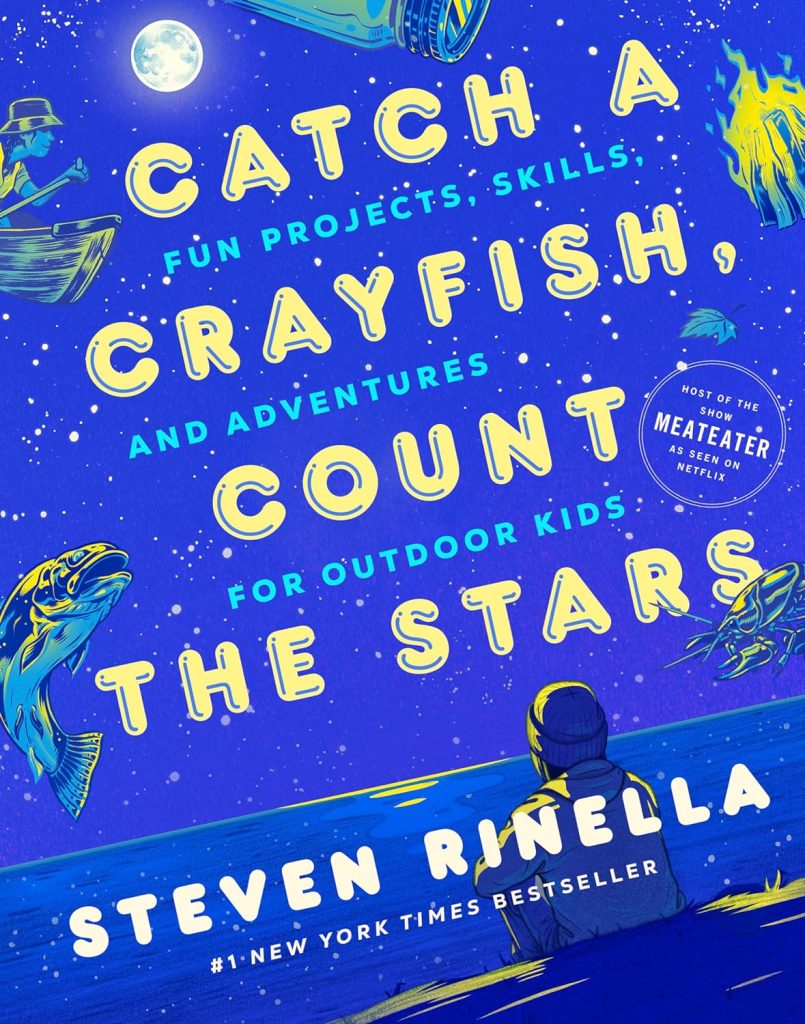
Catch a Crayfish, Count the Stars: Fun Projects, Skills, and Adventures for Outdoor Kids by Steven Rinella (Author), Max Temescu (Illustrator)
“Filled with advice, insights, and activities to inspire wonder and excitement about the natural world, Catch a Crayfish, Count the Stars is a curious kid’s treasure trove, filled to the brim with outdoor projects, skills, and adventures complete with illustrations.”
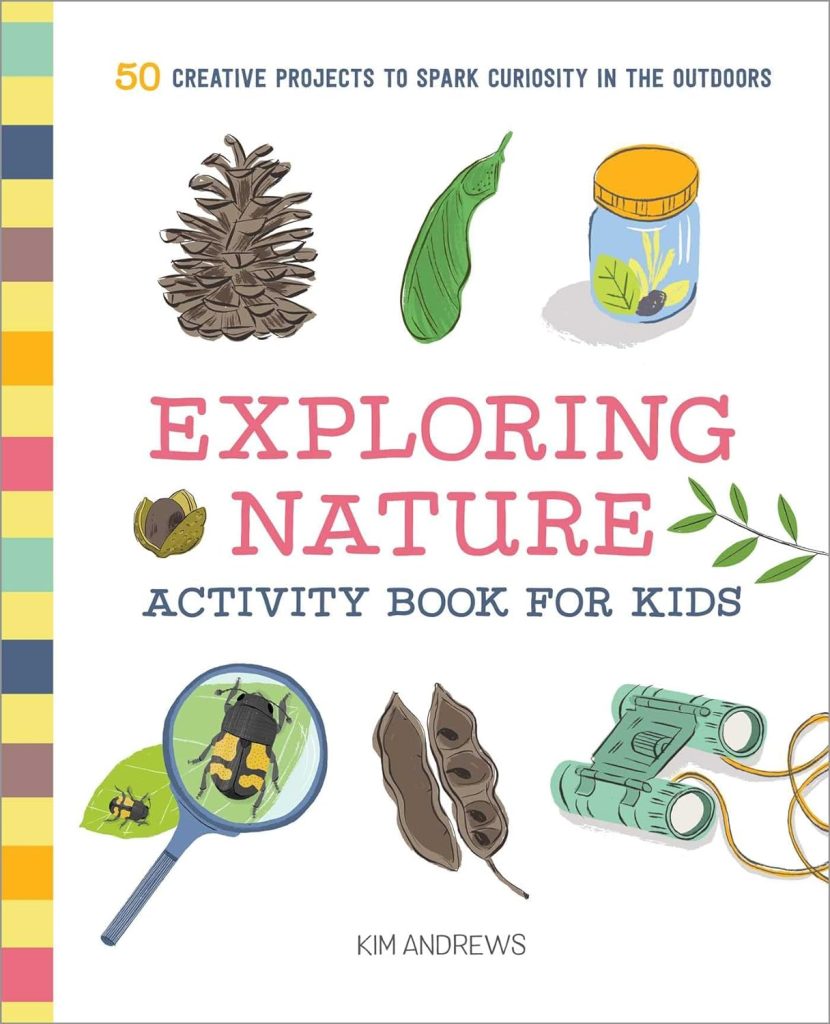
Exploring Nature Activity Book for Kids: 50 Creative Projects to Spark Curiosity in the Outdoors by Kim Andrews (Author)
“Track, explore, discover, and create! This incredible choice in nature books for kids is full of activities you can bring on your adventures through your backyard, the park, the woods, and beyond. “

The Ultimate Book of Scavenger Hunts: 42 Outdoor Adventures to Conquer with Your Family by Stacy Tornio (Author)
“Give kids a list of things to find, and they naturally want to turn it into a game and start checking things off. Add in an outdoor and nature twist, and the game is elevated to a whole new level—and what an amazing opportunity to engage kids and families with nature in a whole new way.”
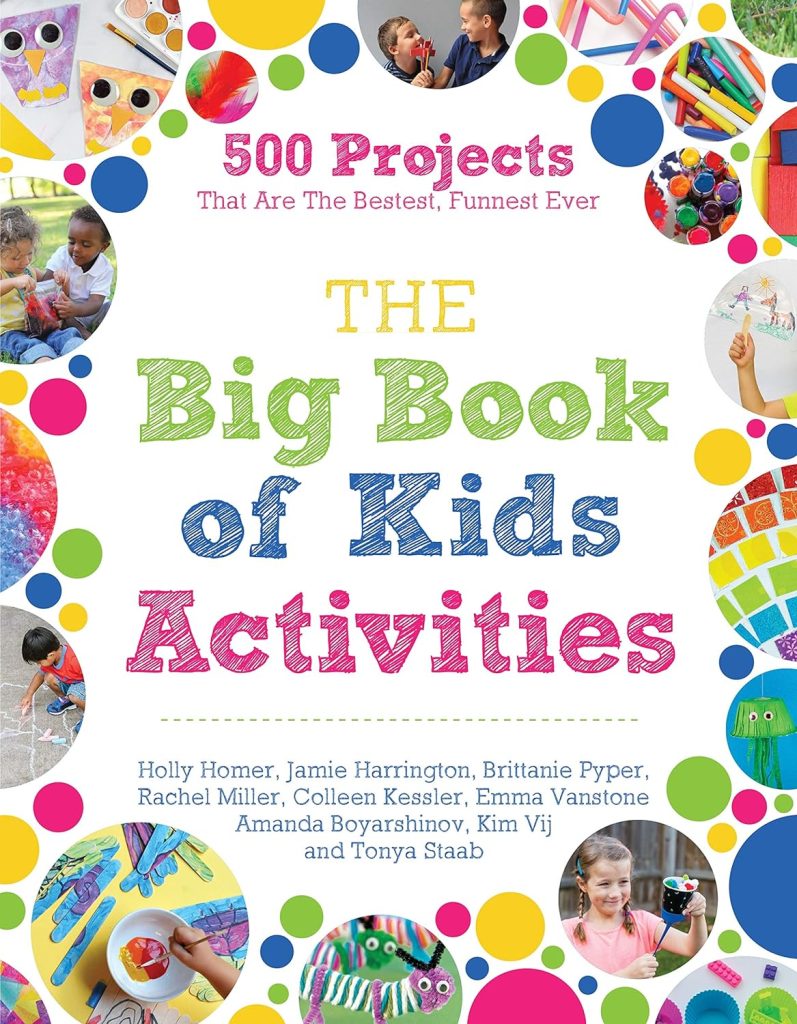
The Big Book of Kids Activities: 500 Projects That Are the Bestest, Funnest Ever by Holly Homer (Author) et al.
“Never again will you hear the all-too-common call of, “I’m bored!” Whether you’re making glow-in-the-dark slime, launching rocket ships, conducting backyard science experiments or playing Family Four Square, there are super fun activities for children aged 3 to 12.”
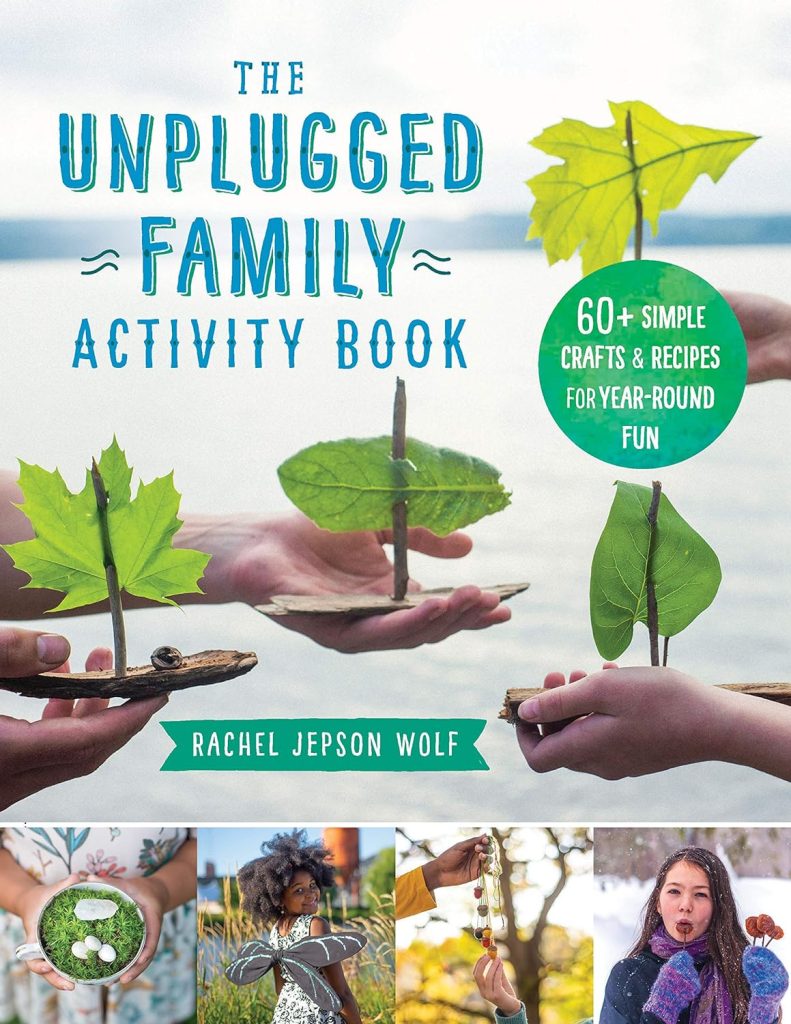
The Unplugged Family Activity Book: 60+ Simple Crafts and Recipes for Year-Round Fun by Rachel Jepson Wolf (Author)
Kid-approved ideas that celebrate the great outdoors year round!
Ages: 8 to 12
What if your child refuses to pick an activity?
Sometimes kids balk at every idea or suggestion throw their way. Maybe your child is hungry or tired, or perhaps they are trying to get your attention. When this happens, asses the situation and try these approaches:
- Encourage your child to have a rest or a healthy snack if needed.
- Send you child outside!
- Have your child do an age-appropriate chore.
- Give your child two activity choices, and pick one if they refuse to pick.
- Have your child write in a mindset or gratitude journal like the Big Life Journal, Happy Confident Me or The 3 Minute Gratitude Journal for Kids.
What do you do when your child is bored? Share your tips and trick with us!
- Ndetei DM, Nyamai P, Mutiso V. Boredom-understanding the emotion and its impact on our lives: an African perspective. Front Sociol. 2023 Jun 29;8:1213190. doi: 10.3389/fsoc.2023.1213190. PMID: 37456271; PMCID: PMC10342197.
- Westgate, E. C. (2020). Why Boredom Is Interesting. Current Directions in Psychological Science, 29(1), 33-40. https://doi.org/10.1177/0963721419884309
